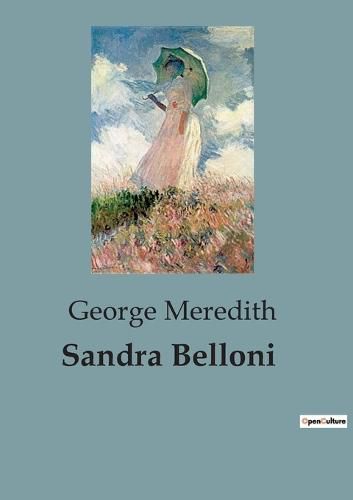Readings Newsletter
Become a Readings Member to make your shopping experience even easier.
Sign in or sign up for free!
You’re not far away from qualifying for FREE standard shipping within Australia
You’ve qualified for FREE standard shipping within Australia
The cart is loading…






" We are to make acquaintance with some serious damsels, as this English generation knows them, and at a season verging upon May. The ladies of Brookfield, Arabella, Cornelia, and Adela Pole, daughters of a flourishing City-of-London merchant, had been told of a singular thing: that in the neighbouring fir-wood a voice was to be heard by night, so wonderfully sweet and richly toned, that it required their strong sense to correct strange imaginings concerning it. Adela was herself the chief witness to its unearthly sweetness, and her testimony was confirmed by Edward Buxley, whose ear had likewise taken in the notes, though not on the same night, as the pair publicly proved by dates. Both declared that the voice belonged to an opera-singer or a spirit. The ladies of Brookfield, declining the alternative, perceived that this was a surprise furnished for their amusement by the latest celebrity of their circle, Mr. Pericles, their father's business ally and fellow-speculator; Mr. Pericles, the Greek, the man who held millions of money as dust compared to a human voice. Fortified by this exquisite supposition, their strong sense at once dismissed with scorn the idea of anything unearthly, however divine, being heard at night, in the nineteenth century, within sixteen miles of London City. They agreed that Mr. Pericles had hired some charming cantatrice to draw them into the woods and delightfully bewilder them. It was to be expected of his princely nature, they said. The Tinleys, of Bloxholme, worshipped him for his wealth; the ladies of Brookfield assured their friends that the fact of his being a money-maker was redeemed in their sight by his devotion to music. Music was now the Art in the ascendant at Brookfield. The ladies (for it is as well to know at once that they were not of that poor order of women who yield their admiration to a thing for its abstract virtue only)-the ladies were scaling society by the help of the Arts. To this laudable end sacrifices were now
$9.00 standard shipping within Australia
FREE standard shipping within Australia for orders over $100.00
Express & International shipping calculated at checkout
" We are to make acquaintance with some serious damsels, as this English generation knows them, and at a season verging upon May. The ladies of Brookfield, Arabella, Cornelia, and Adela Pole, daughters of a flourishing City-of-London merchant, had been told of a singular thing: that in the neighbouring fir-wood a voice was to be heard by night, so wonderfully sweet and richly toned, that it required their strong sense to correct strange imaginings concerning it. Adela was herself the chief witness to its unearthly sweetness, and her testimony was confirmed by Edward Buxley, whose ear had likewise taken in the notes, though not on the same night, as the pair publicly proved by dates. Both declared that the voice belonged to an opera-singer or a spirit. The ladies of Brookfield, declining the alternative, perceived that this was a surprise furnished for their amusement by the latest celebrity of their circle, Mr. Pericles, their father's business ally and fellow-speculator; Mr. Pericles, the Greek, the man who held millions of money as dust compared to a human voice. Fortified by this exquisite supposition, their strong sense at once dismissed with scorn the idea of anything unearthly, however divine, being heard at night, in the nineteenth century, within sixteen miles of London City. They agreed that Mr. Pericles had hired some charming cantatrice to draw them into the woods and delightfully bewilder them. It was to be expected of his princely nature, they said. The Tinleys, of Bloxholme, worshipped him for his wealth; the ladies of Brookfield assured their friends that the fact of his being a money-maker was redeemed in their sight by his devotion to music. Music was now the Art in the ascendant at Brookfield. The ladies (for it is as well to know at once that they were not of that poor order of women who yield their admiration to a thing for its abstract virtue only)-the ladies were scaling society by the help of the Arts. To this laudable end sacrifices were now